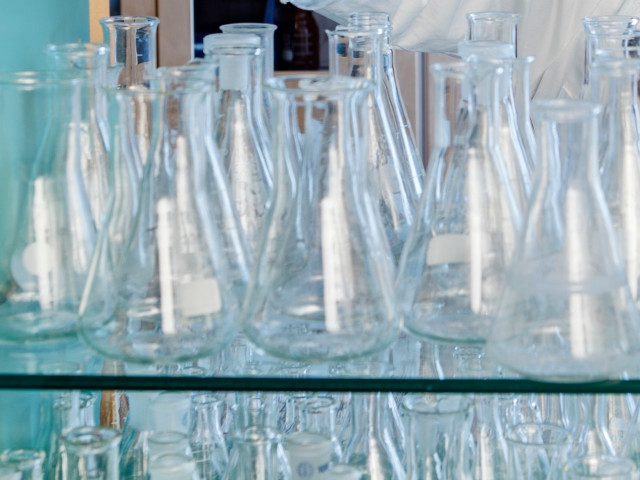- nuclear structure, stability, decay, nuclear reactions.
- the interaction between radiation and matter: retardation, absorption and scattering.
- chemical and biological effects of radiation: radiation chemistry.
- questions concerning protection against radiation.
- isotopic chemistry: chemical methods for enrichment of stable isotopes.
- radioactive nuclides: radioactive measuring methodology, methods for production, purification and marking of chemical substances.
- fields of application of radioactive nuclides: detection methods, radioanalytical chemistry, dating methods, etc.
- methods for solving various problems in engineering and basic research.
KD2080 Nuclear Chemistry 7.5 credits

Basic nuclear chemistry.
Information per course offering
Course offerings are missing for current or upcoming semesters.
Course syllabus as PDF
Please note: all information from the Course syllabus is available on this page in an accessible format.
Course syllabus KD2080 (Autumn 2007–)Content and learning outcomes
Course contents
Intended learning outcomes
To give the students
- basic knowledge of nuclear structure, stable and unstable atomic nuclei, nuclear reactions and different modes of radioactive decay and also methods for measurements of radioactivity.
- the fundamentals of radiochemistry, isotopic chemistry, radiation chemistry and the applications of these in measuring technology, kinetics, radical chemistry, biotechnology and materials and process technology.
- skills in handling and measurement of radioactive material.
Literature and preparations
Specific prerequisites
Three years of study at the School of Chemistry, Chemical Engineering and Biotechnology, KTH, or equivalent.
Literature
1.G. Choppin, J. Rydberg, J.O. Liljenzin: Radiochemistry and Nuclear Chemistry, 1995.
2.Handouts.
Examination and completion
Grading scale
Examination
- TEN1 - Examination, 4.5 credits, grading scale: A, B, C, D, E, FX, F
- LAB1 - Laboratory Work, 3.0 credits, grading scale: P, F
Based on recommendation from KTH’s coordinator for disabilities, the examiner will decide how to adapt an examination for students with documented disability.
The examiner may apply another examination format when re-examining individual students.
If the course is discontinued, students may request to be examined during the following two academic years.
Other requirements for final grade
Written examination, 4,5 credits.
Completed laboratory course including calculation assignment, 3 credits.
Examiner
Ethical approach
- All members of a group are responsible for the group's work.
- In any assessment, every student shall honestly disclose any help received and sources used.
- In an oral assessment, every student shall be able to present and answer questions about the entire assignment and solution.
Further information
Course room in Canvas
Offered by
Main field of study
Education cycle
Supplementary information
Will replace 3B1301